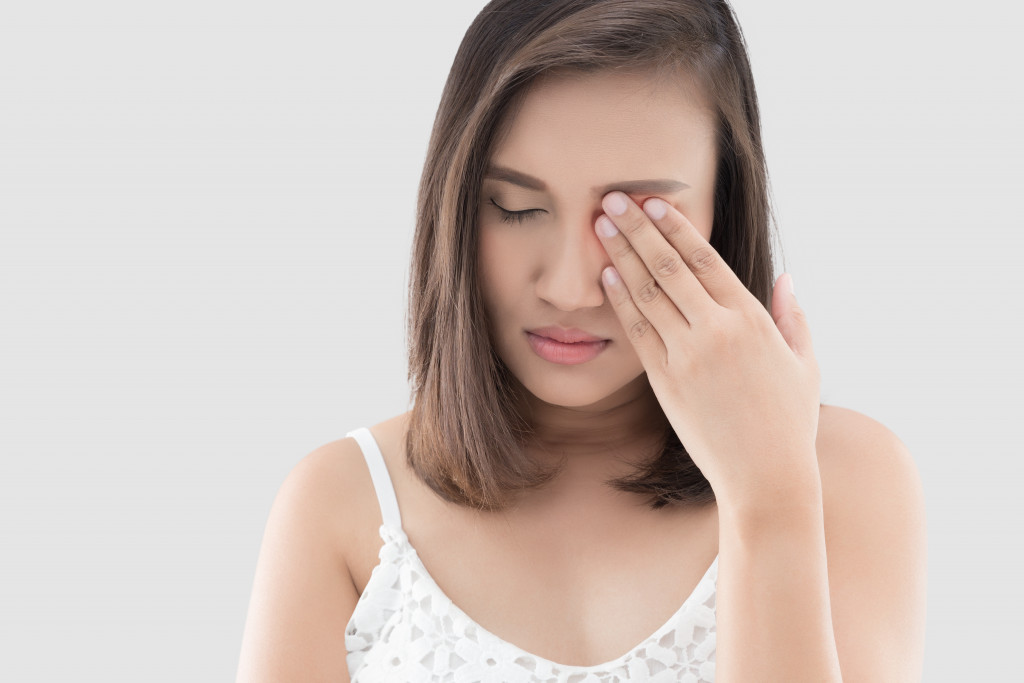Dark circles under the eyes are a common issue for both men and women. However, they cannot always be explained by a lack of sleep. There can be a few other reasons for their appearance under your eyes.
For some, dark circles have more to do with genetics than anything else. For others, though, hyperpigmentation can result from certain lifestyle choices. In these situations, adjustments to your daily habits will be necessary.
Sometimes, all it takes is to buy Antu online and switch up your skincare routine. But other cases require a more proactive approach that addresses lifestyle and health concerns.
Why Do I Have Dark Circles?
Dark circles appear under the eyes for different reasons, These are some possibilities that you can check against your own experience:
When Heredity and Aging Are to Blame
Sometimes, the reason for your dark circles can be traced back to genetics. As an inherited trait, these dark circles can even manifest early into your childhood. They can either grow darker or fade as you grow older.
Another possible explanation for dark circles under the eyes is the aging process. Your skin naturally grows thinner with age. The collagen breakdown can cause the skin under your eyes to darken and your eyelids to become puffy, forming shadows that worsen its appearance.
To verify how much of the darkness under your eyes is caused by pigmentation, use a finger to pull on your skin lightly. If it is really pigmented, the color will stay the same no matter how you move it around or adjust the lighting.
How Some Medical Conditions Cause Dark Circles
There are instances where an existing medical condition could be the cause of your dark circles. For example, psoriasis and eczema are two conditions that can cause redness of the skin due to their inflammatory nature.
They often leave dark scars in their wake, sometimes under the eyes. These should lighten with time, but one thing to note is that dark spots tend to fade faster on lighter skin tones than darker skin tones.
Unfortunately, there are no known cures for psoriasis or eczema, but topical treatments can alleviate the discomfort caused by both conditions and reduce hyperpigmentation.
Additionally, allergies can cause reactions called “allergic shiners.” This occurs when nasal congestion leads to congestion of the veins under your eyes. The veins then swell and darken, which in turn makes the area under your eyes appear darker.
How Poor Daily Habits Cause Dark Circles

While genetics, aging, and medical conditions can sometimes cause dark circles, do not immediately rule out the possibility that bad lifestyle choices aggravate their appearance under your eyes.
Consider your sleeping habits, for one. Do you often sleep late or oversleep? Sleep deprivation can make your skin look dull and your eyelids puffy, which can cause the skin to look darker due to your blood vessels and the shadow from your eyelids.
You should also assess if you spend too much time looking at screens and monitors, whether for work or leisure. Eye strain can also cause blood vessels to enlarge and make the under-eye area darker. Avoid this by taking hourly breaks from your screen to stretch, walk around, and rest your eyes.
You should also pay attention to how often you drink water daily. Dehydration dulls the complexion and makes the eye area appear sunken. Make sure your body is well hydrated, which you can measure by remembering to drink around eight glasses of water a day.
What Else Can I Do to Treat Dark Circles?
While dark circles under the eyes are not necessarily a sign of a serious health issue, they can make you look tired and unhealthy. You can take some treatments to help reduce their appearance, aside from the previously mentioned habits.
One way to help your skin look better every day is to follow a good skincare routine that moisturizes your skin and protects it from sun exposure, as dryness and irritation can drain its glow. Use brightening products that have ingredients such as retinol, vitamin E, and hydrating nutrients.
You may also opt to visit a dermatologist for a more direct approach. Depending on your case, they can prescribe eye creams to address mild cases or perform procedures to address hyperpigmentation.
Dark circles, inconvenient as they are, are usually not a cause for alarm. Remember, though, that should the dark spots persist or you experience swelling, itching, or irritation on your eye area, it is safest to consult a doctor instead of finding remedies on your own.
